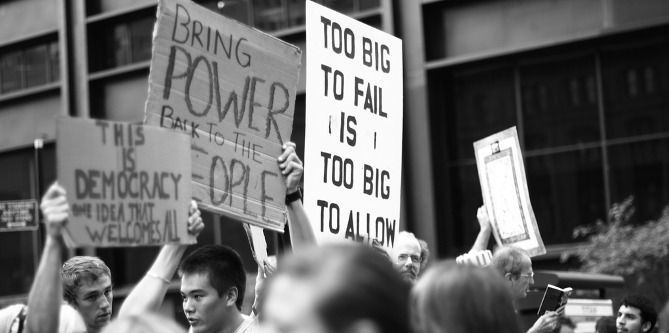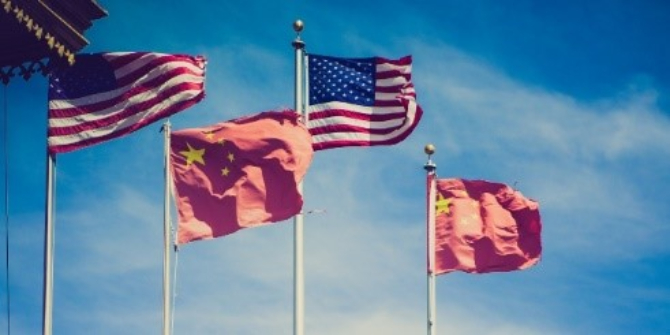 This week has seen some signs of a potential diplomatic solution to the Russia-Ukraine crisis, with Russia expressing that it would reduce the number of its troops stationed near Ukraine, and Ukrainian President Volodymyr Zelensky’s softer line on NATO membership. Professor Peter Trubowitz reviews those diplomatic moves and how the crisis is impacting Biden and NATO, more generally.
This week has seen some signs of a potential diplomatic solution to the Russia-Ukraine crisis, with Russia expressing that it would reduce the number of its troops stationed near Ukraine, and Ukrainian President Volodymyr Zelensky’s softer line on NATO membership. Professor Peter Trubowitz reviews those diplomatic moves and how the crisis is impacting Biden and NATO, more generally.
Is there any hope of a diplomatic settlement to the crisis?
In the past 24 hours there has been some movement: most notably, Moscow’s announcement of a partial drawdown of troops near the Ukraine border with Belarus and Ukrainian President Volodymyr Zelensky’s suggestion yesterday that his country’s desire to be part of NATO is more “a dream” than a realistic goal. If Moscow makes good on its draw down, a big if, and Zelensky holds to that line, it could provide a basis for defusing the crisis, by giving Putin a way to claim progress on his fundamental demand (that Ukraine not join NATO) while allowing US President Joe Biden to say that NATO’s “open-door” policy for NATO membership remains intact. One question is whether Zelensky can make that kind of commitment politically and survive, or perhaps more to the point, be given enough additional assurances by Washington, Berlin, and others, to make it attractive enough to forgo membership in NATO. My bet is that behind the scenes this is where things stand. Whether it is enough this late in the game remains to be seen.
If diplomacy fails and Putin invades, will the West hold firm?
If Russian President Vladimir Putin launches a major military attack, it is likely to bolster Western resolve and willingness to back stiff sanctions against Moscow. One of the ironies of Putin’s gambit thus far is that it has strengthened, not weakened, the Western alliance. It has revitalized NATO by giving it a purpose — something it hasn’t had since the Soviet Union collapsed 30 years ago. It has led to the deployment of more US and other troops in Eastern Europe, as well as the delivery of thousands of anti-tank missiles and other weapons to Ukraine. Putin has managed to get everyone’s attention in the West, but the results are not all favorable for him.
What kind of marks do you give Biden for managing the crisis?
So far, Biden has done a good job of responding to Putin’s efforts to change Europe’s security structure. In the process, Biden has helped himself internationally and domestically, for that matter. Internationally, Biden’s response has provided some much-needed evidence that his claim that “America’s back” isn’t just empty rhetoric. Biden’s hands-off and carefully weighed responses have put distance between himself and his administration’s ham-fisted withdrawal from Afghanistan last summer and four years of American drift under Donald Trump. Domestically, it has given Biden an opportunity to be Commander-in-Chief and not coincidentally, counter a major Republican talking point that he is indecisive and incompetent.
Where is China on all of this?
Beijing is in a very good place right now. Every day that Joe Biden’s foreign policy team is focused on Moscow is a day he’s not as focused on East Asia and Beijing as it would like to be. Chinese President Xi Jinping is watching Putin do all the heavy-lifting testing Western unity and resolve over Ukraine, while taking Biden’s measure to see what, if any, his actions in Europe might mean for America’s commitments in East Asia and in particular, US-China disagreements over Taiwan.
- This article is based on comments made by Professor Trubowitz in an interview with Bloomberg Surveillance on February 15, 2022. Professor Trubowitz’s comments begin at 1:44:08.
- Featured image: Secretary of State Antony J. Blinken meets with Russian Foreign Minister Sergey Lavrov in Geneva, Switzerland, on January 21, 2022. [State Department photo by Ron Przysucha/ Public Domain].
Please read our comments policy before commenting
Note: This article gives the views of the author, and not the position of USAPP– American Politics and Policy, nor of the London School of Economics.
Shortened URL for this post: https://bit.ly/3sHYplP
About the author
 Peter Trubowitz – LSE Phelan US Centre
Peter Trubowitz – LSE Phelan US Centre
Peter Trubowitz is Professor of International Relations, and Director of the LSE’s Phelan US Centre. His main research interests are in the fields of international security and comparative foreign policy, with special focus on American grand strategy and foreign policy. He also writes and comments frequently on US party politics and elections and how they shape and are shaped by America’s changing place in the world.






